At a Glance
Scott Allen explains the important timing of his new book, 10 Words to Heal Our Broken World: Restoring the True Meaning of Our Most Important Words. He shares why words and their definitions are critical and how each of us can faithfully steward, preserve, and pass these God-given words and meanings to future generations. We pray God will use this book to stir revival in the Church and restoration of our culture. Words form our thoughts, thoughts lead to action, and our actions can change the world. God’s definitions of these essential words create flourishing nations, while their hijacked redefinitions result in destruction.
Learn more, purchase the book, and find companion videos at 10wordsbook.org. An audiobook and Bible study course will soon be available.
Scott David Allen
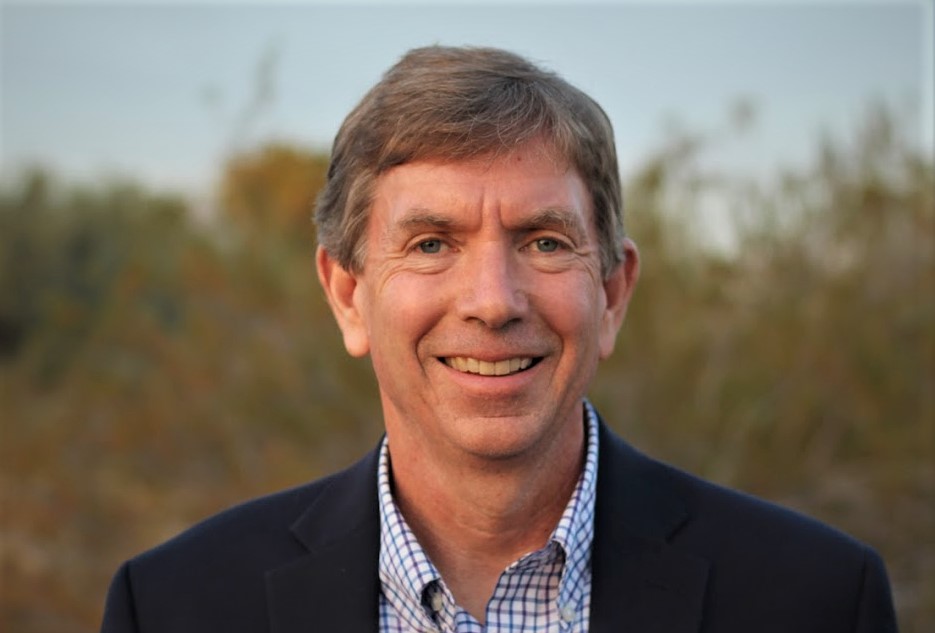
Scott David Allen is an author and teacher on Christianity and culture, worldview, family, Biblical justice, and poverty. He serves as the president of the Disciple Nations Alliance Global Secretariat office. After serving with Food for the Hungry for 19 years in both the United States and Japan, working in the areas of human resources, staff training and program management, he teamed up with Darrow Miller and Bob Moffitt to launch the DNA in 2008. Scott has authored and co-authored numerous books, articles, and Bible studies, including Why Social Justice Is Not Biblical Justice, A Toxic New Religion, The Forest in the Seed, As the Family Goes, So Goes the Nation, and the “Kingdom Lifestyle” Bible studies.
Resources
What You'll Hear
Using the link above, you can read the transcript or listen along while highlighted text follows the podcast audio.
"Words and definitions shape the way we think and feel and that, in turn, determines our choices and our actions, and that shapes the kind of culture that we live in, for better or for worse. And so if you want to work for a positive change in culture and society, it has to begin by restoring the true meaning of our most important words."
Scott Allen
Quotes
Series: Truth
Go Deeper
Truth is an internal, personal, and subjective sense of reality that exists only in the mind. It’s a social construct created to advantage whatever group currently holds power. These are the predominant understandings of one of the most important words in our world. The majority of people around you think and act based on this understanding. Today, courts are being corrupted by those in power and men are going to the Olympics claiming to be women. It’s not as if we can just say two plus two equals five. Truth matters, and if we as Christians don’t hold to God’s clear, eternal, and essential definition of Truth, we’re at the doorstep of chaos. Scott Allen and the team unpack this first word from Scott’s new book, 10 Words to Heal Our Broken World: Restoring the True Meaning of Our Most Important Words, and learn how you can play a part in healing and restoring this broken world through the protection and proclamation of Truth.
Series: HUMAN
Humans are not merely animals or radically autonomous agents, and identity groups do not simply define us. It’s time Christians challenge our modern culture’s false understanding of human dignity and worth by contrasting it with the beautiful biblical definition of humanity. Imagine the impact if Christians could champion what it means to be humans as image bearers of God. This one change could flip our culture of death on its head.
Discover the profound implications of what it means to be human as we discuss insights from Scott Allen’s forthcoming book, 10 Words to Heal Our Broken World. As with each discussion on the ten words from Scott’s book, we’ll walk step by step through the true biblical definition, discuss the false redefined understanding, and conclude by giving you practical ways you can restore the true meaning of this word in your life, community, and nations. Together, let’s celebrate our shared dignity as image-bearers of God and foster a more just and compassionate society for the glory of God and the blessing of nations.
Series: SEX
Sex and its definition are powerful, literally bringing life to individuals, marriages, and families. Meanwhile, false definitions of sex abound and lead individuals and society into incredible confusion and pain. Let’s look at popular definitions today and compare them with a definition of sex founded on biblical principles and consider why the difference matters.
The world says SEX is (1) Synonymous with gender, a social construct; a person’s subjective sense of their sexual identity, without regard to biology or anatomy. (2) The ultimate source of personal identity and meaning. (3) Any form of recreational sexual activity done to give pleasure.
Biblical principles teach us that SEX is (1) The God-created male-female division. (2) Sexual intercourse between a man and a woman; a comprehensive one-flesh union of heart, mind, spirit, and body, often bringing the gift of children. Sexual intercourse is a gift from God exclusively for the uniting of husband and wife in marriage.
Words and definitions matter because they shape the way we think and feel. These, in turn, determine our choices and actions, which shape the cultures we live in, for better or worse. One of the primary desires of the Sexual Revolution of the 1950s and ’60s was to radically redefine the word sex. The Sexual Revolution has accomplished its goal of turning the word sex on its head. But ideas have consequences, and as we have seen over the last 60-plus years, everything these new definitions of sex touch has eventually led to despair and destruction. Why has this happened? Because once again, whenever humans try to take a God-given word and twist it to mean anything besides its original definition, we’re simultaneously twisting ourselves away from God’s perfect design for us.
Series: Marriage
Historically, the definition of marriage has been rich, calling humanity toward a knowledge of the truth of our very nature. Based on biblical principles, marriage was understood to be: “A God-ordained, comprehensive, exclusive, and permanent union that brings a man and a woman together as husband and wife, to be father and mother to any children their union brings into being. It is based on the anthropological truth that men and women are different and complementary, the biological fact that reproduction depends on a man and a woman, and the social reality that children need both a mother and a father.”
Today, marriage has been radically redefined and simply means “a legally recognized, romantic caregiving relationship between consenting adults who intend to live together as sexual and domestic partners.”
Can the redefinition of a word so transform our thinking that the actual truth and meaning of the word becomes extinct? In today’s episode, Scott Allen, author of the upcoming book, 10 Words to Heal Our Broken World, responds by analyzing how we got here, considering the consequences of holding this definition, and helping us discern how we can bring God’s truth back to this critical word. As Christians, we absolutely must not let the meaning of marriage continue to slide further and further from God’s original definition. It’s far past time, but not too late, for us as believers to stand up for marriage for the sake of our communities, nations, children, and for generations to come.
Series: Freedom
Freedom means I can do whatever I want, right? Wrong, that’s a hijacked and distorted meaning. The Biblical view of freedom is “The capacity to self-govern; to act according to one’s choices within God’s created order and under His moral law.” This matters because it gives guidance for a culture to truly maintain freedom without succumbing to humanity’s gravitational pull toward chaos. It requires a collective embrace of the boundaries that God lovingly instituted for our good and flourishing. Join Scott and the team as we consider the wisdom of this definition and contrast it with the contemporary counterfeit. What kinds of lives and societies would grow from these contrasting definitions? This episode will encourage you to consider the profound importance and implications of this word and how it is used.
Series: Authority
This powerful word has been so redefined and repeatedly abused that many Christians shy away at the mention of it. Yet, authority can bring about incredibly positive change when exercised in proper obedience to God’s original intentions. In this episode, we delve into the true, biblical meaning of authority, exploring how Jesus entrusts each of us with different forms of it.
We’ll challenge the idea that authority is inherently oppressive or self-serving, showing instead how Christ models a selfless, accountable form of leadership. Authority, in its purest form, isn’t about power concentrated in governments or rulers who stray from God’s purposes—it’s about serving others with integrity and humility.
Join us as we define and unpack the biblical understanding of authority and discover how, as Christians, we can faithfully live out the roles of authority entrusted to us.
Series: Justice
Is justice about dismantling oppressive systems and redistributing power to achieve equality of outcome? Or is that a redefinition of true justice? In recent years, postmodernism and neo-Marxist critical theory have shaped a new ideology labeled “social justice.” Though it claims to promote equality and defend the oppressed, this worldview stands in stark contrast to biblical justice.
In this episode, we offer a defense of biblical justice and explain why we’ve moved away from the phrase “social justice.” Join us as we unpack the foundational ideas behind these two opposing views of justice and explore the consequences of living them out in today’s society.
Series: FAITH
Can you have faith without the existence of evidence? In this episode, we explore the essence of this often confused word that lies at the heart of the gospel. We discuss the flawed idea that faith is blind and disconnected from reality and facts. Conversely, we argue that faith is to “assent to the weight of evidence.” Faith is to trust in the truthfulness and reliability of something or someone, based on a careful search of available evidence and personal experience.
Join us for another stop on our journey through 10 Words to Heal Our Broken World, a book aimed at restoring the foundational meanings of our culture’s most important words. Today, our exploration reveals how differing belief systems and worldviews shape societal trust. We invite you to consider how understanding faith can transform individual choices and the broader social landscapes of our nations.
series: Beauty
How can beauty heal our broken world? In this episode, part nine of our 10 Words series, we explore the biblical foundations of beauty and its transformative power to change lives and nations. We challenge the notion that beauty is merely subjective, revealing how the Bible establishes a universal standard for beauty, truth, and goodness. Our conversation contrasts biblical and contemporary views of beauty, emphasizing its role in understanding God and creation. Through art, nature, and personal reflections, we show how beauty connects us to the divine and reshapes culture. Cultures that recognize God as the source of beauty thrive, and the converse holds true as well. Beauty is a gift for all—essential to our spiritual journey and daily lives, not just for artists or grand cathedrals.
series: Love
Can love truly heal our broken world? It might sound romanticized, but perhaps that’s because we haven’t fully explored the depth and weight of love. In this episode, we dive into a chapter from Scott Allen’s new book, 10 Words to Heal Our Broken World. We need to reshape our understanding of love, moving beyond the superficial definitions that dominate modern culture. We will explore love’s concentric circles, from its joyful beginnings to the profound commitments of agape love. We also discuss how love must be grounded in truth.
Have you considered the impact of postmodernism and secularism on cultural perspectives of love? Getting the meaning of love right can heal and unite society. This episode offers practical insights on living out God’s understanding of love, urging us to make it a central practice in our daily lives. Don’t miss this compelling conversation that challenges misconceptions and calls for a return to authentic, life-changing love.
Today, the definition of love has been abbreviated to two simplistic concepts: (1) A source of pleasure, joy, or delight. (2) A strong affection, often accompanied by romantic feelings and sexual attraction. Several other facets of the true meaning of love have been removed from our culture’s thinking. These include: (3) To value, cherish, or treasure. (4) Fidelity and devotion. Faithful commitment. (5) To seek the good of another, to give for his or her benefit, even at a significant personal cost.
For further study, see “The Discipline of Love“ by Bob Moffitt.
BOOK RELEASE Episode
As the maxim goes, if you want to change culture, you begin by changing language. The enemies of the gospel know this all too well. They’ve been cunningly at work redefining our most fundamental words, embedding them in our institutions and school curriculum, all to transform society to reflect their harmful, anti-Christian beliefs.
In this episode and in this book, you will learn how to practically respond by clearly knowing and defending the true biblical definitions of at least ten critical words: truth, human, sex, marriage, freedom, justice, authority, faith, beauty, and love. If we long to see a revival in the church and a reformation of culture, we must recover the true definition of these ten foundational words.
Now available on Amazon and Kindle. An audiobook, companion videos, and a ten-week Bible study course will be available soon! Find all the details and order your copy here!
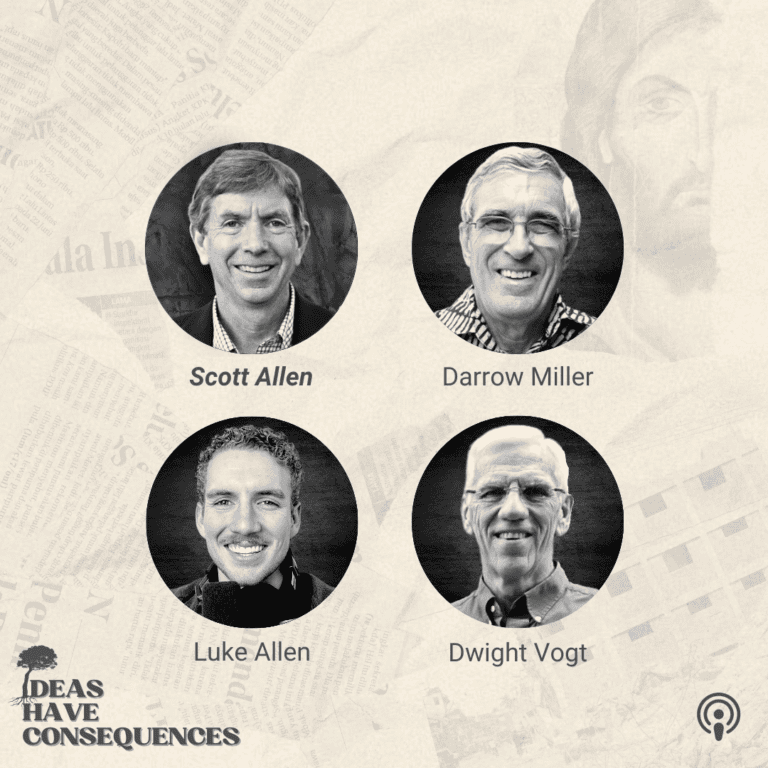





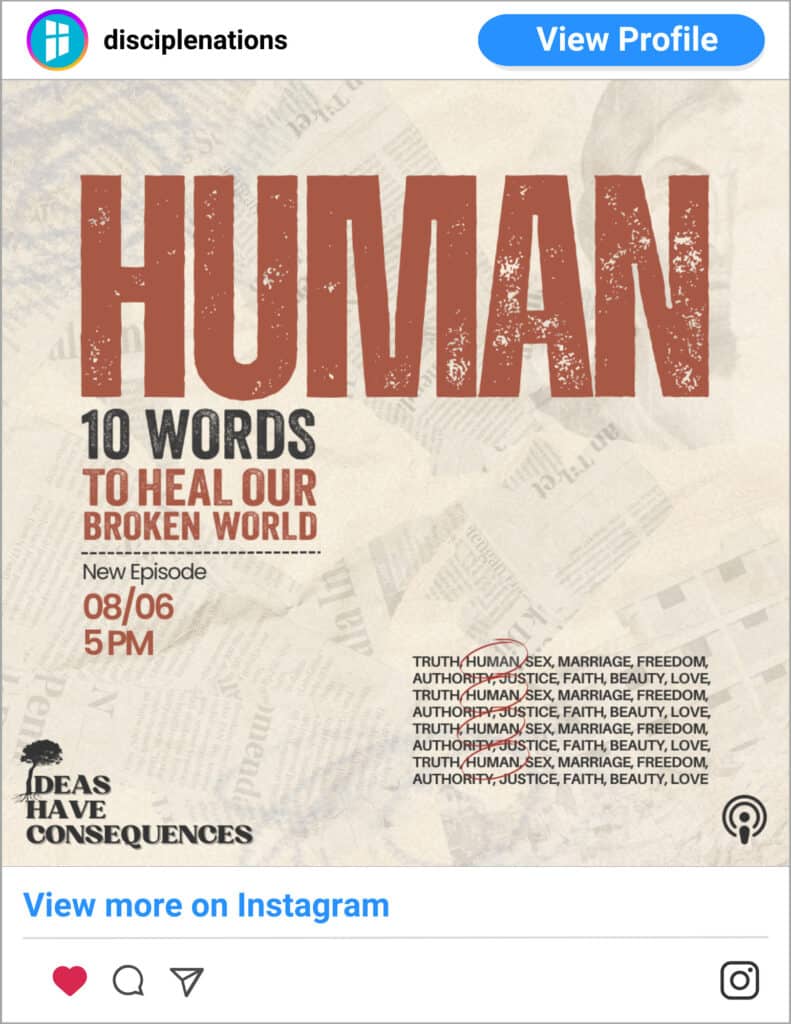

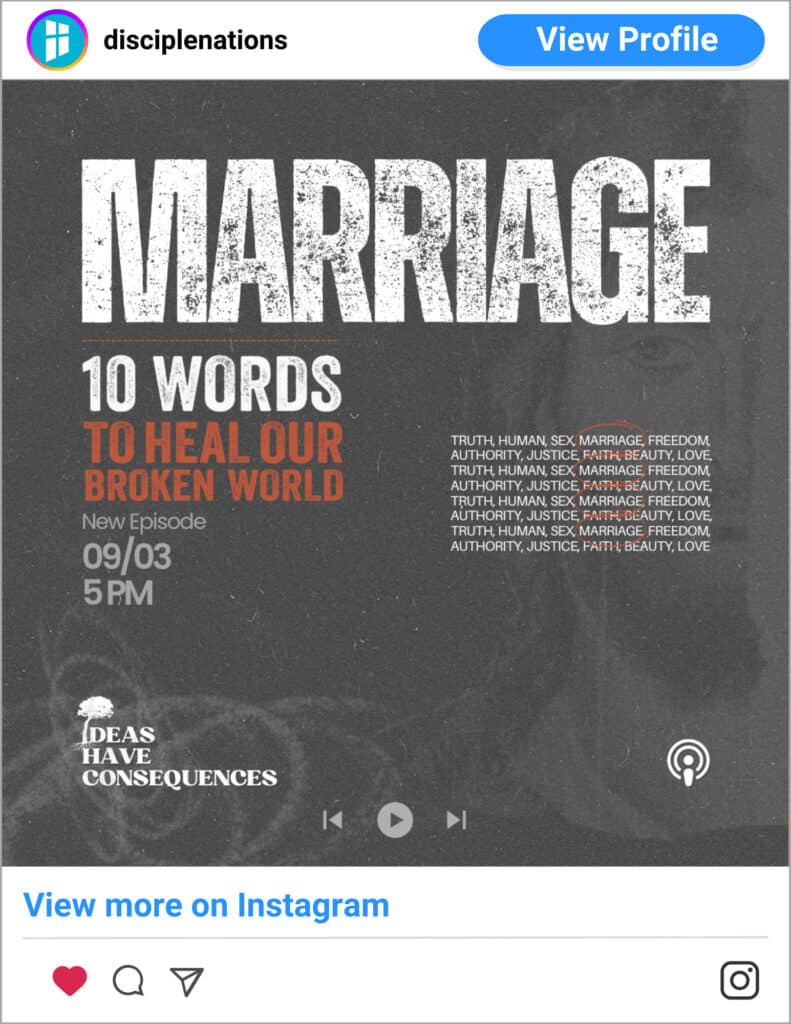
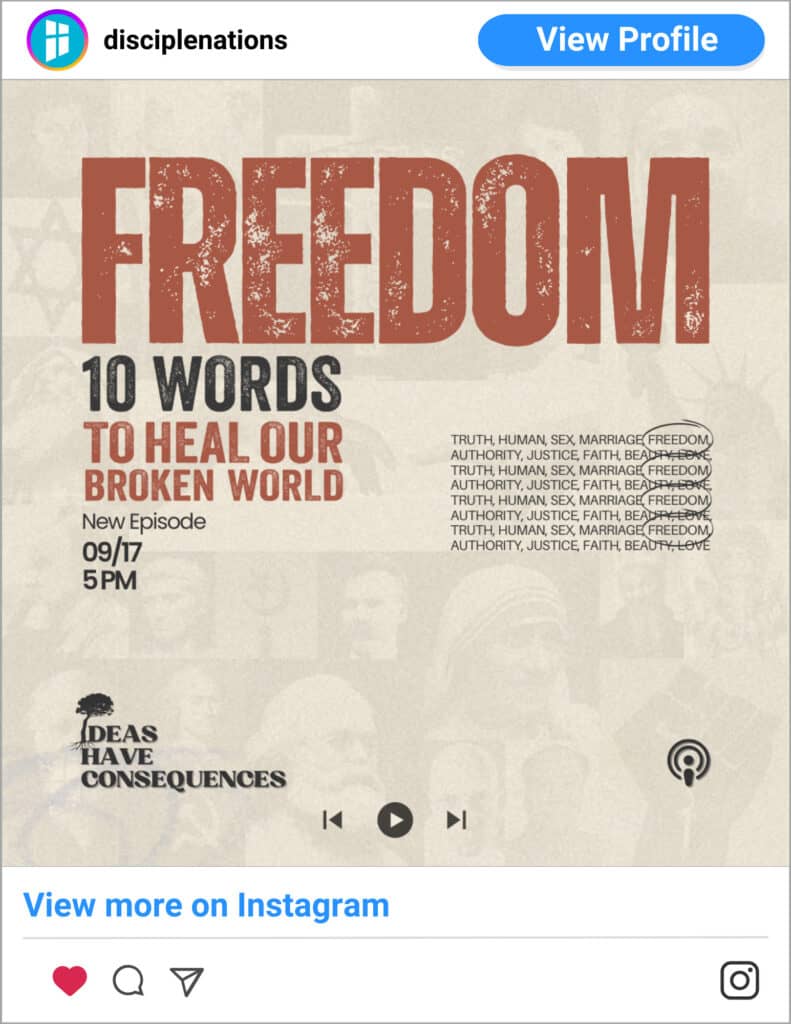

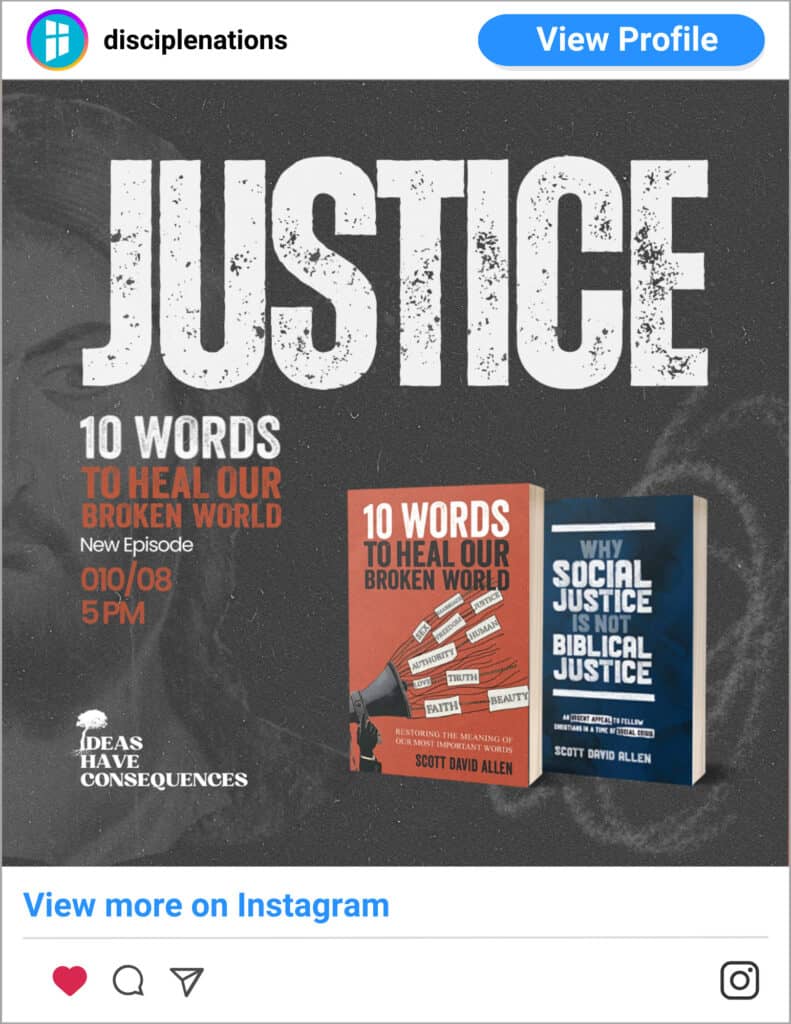

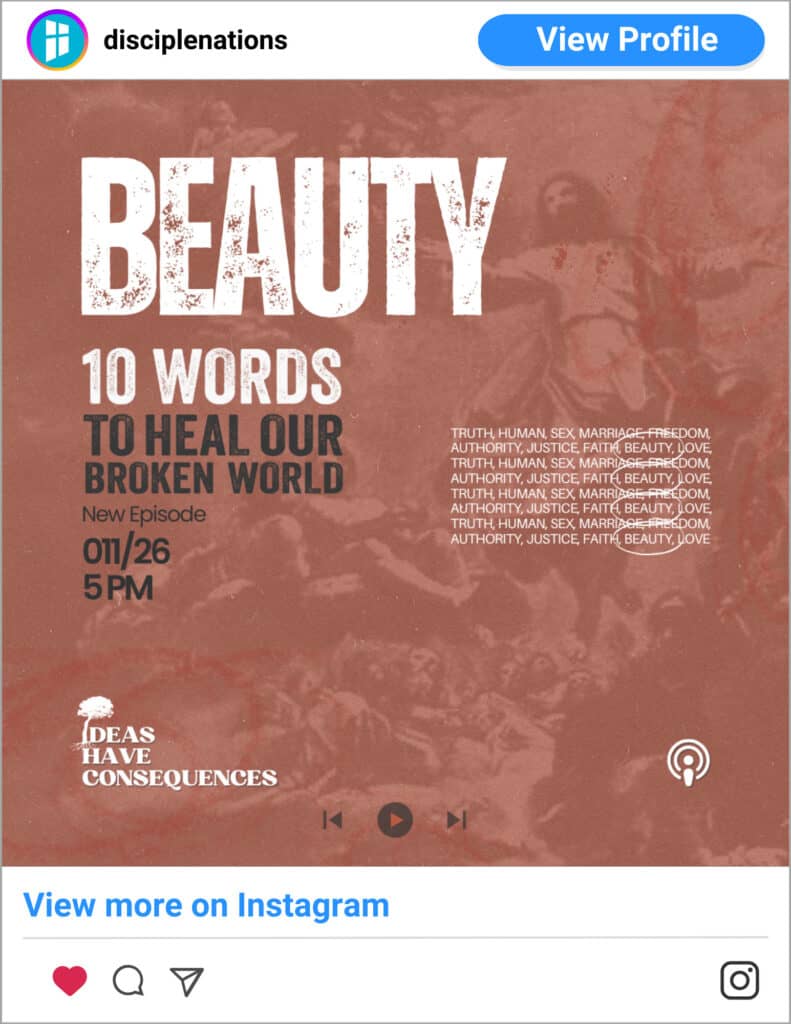

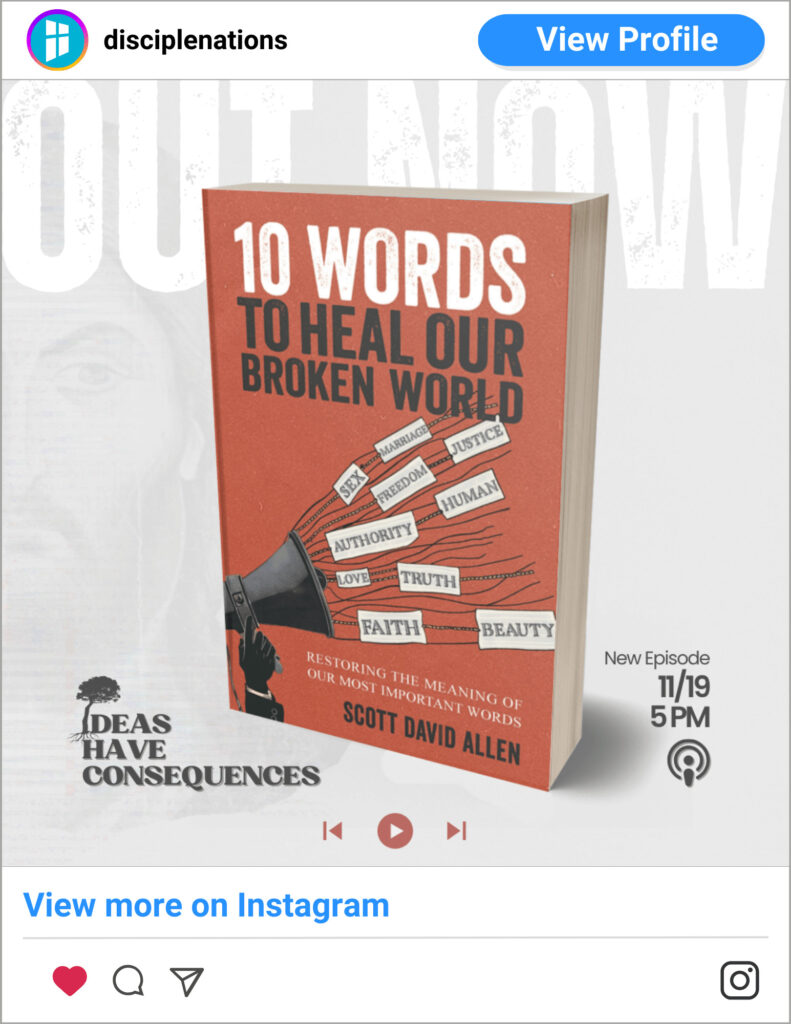



2 Responses
You speak so much about marxism being ‘anti-christian’ but never talk about its real enemy: capitalism. There have been many socialist christian movements – I’d like to hear you discuss the communist Christian movements and explain why your form of christianity has to be so pro-capitalist.
Hi Drew! Thanks for sharing your question with us. Our team gathered a few initial responses to share with you (in no particular order):
(1) Consider checking out this past podcast episode on Capitalism, Socialism, and the Biblical Worldview
(2) You’ll find a number of excellent blogs that might be useful at DarrowMillerandFriends.com – I have one to start linked here.
(3) I would want to nuance the idea that we are “pro-capitalism.” The secular capitalism that we see so much of in our Fortune 500 companies today is very destructive. Yet, at its core, capitalism values free markets, free enterprise, and free exchange, as opposed to communism where there is state control with no individual freedom. For believers, capitalist freedoms for individuals must still come in alignment with God’s moral law and holy character, which would preclude ends that are entirely greedy and selfish.
(4) We hope to respond more fully in an upcoming podcast episode!
(5) Here’s a book from outside our organization that you might find useful to consider: Defending the Free Market: The Moral Case for a Free Economy by Robert Sirico